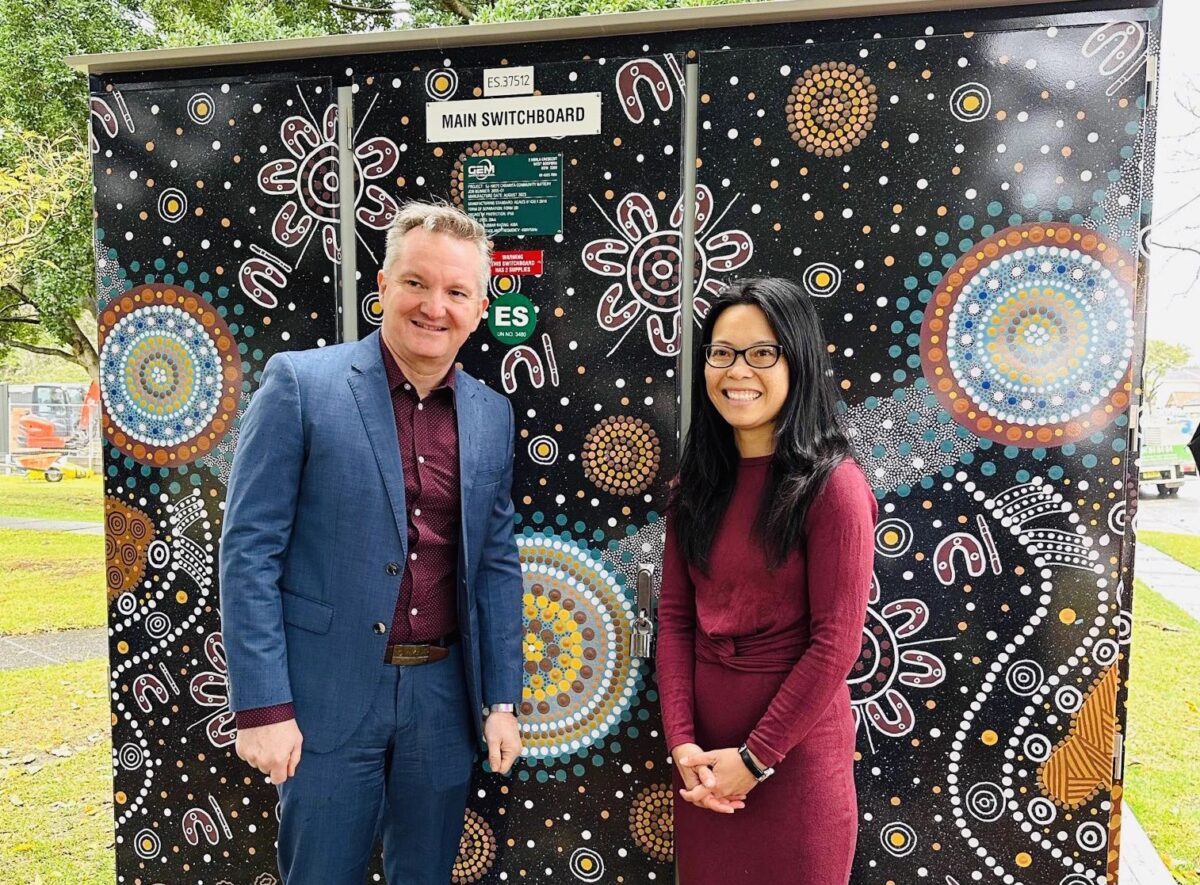The Albanese government has commissioned the first neighbourhood battery of part of its Community Batteries for Household Solar program in Cabarita, Western Sydney.
The federal government’s community battery program was embroiled in contention earlier this year when a Freedom of Information (FOI) request revealed the locations for 58 of the 400 promised batteries were selected while Labor was in opposition and had mainly been promised in locations where the party was either looking to hold or gain seats.
At the time, Chris Bowen, the Minister for Climate Change and Energy, responded to questions about Labor’s selection decisions in Parliament, saying, “opposition [parties] make election commitments… governments, when elected, then deliver on those election commitments.”
Those election promises are now being put into action. In its public statement announcing the commissioning of the community battery, the government reiterated, “In April 2022, the Labor opposition made an election commitment to establish a community battery in Cabarita, and in less than 17 months, it’s now been delivered, providing cleaner, cheaper energy in the electorate of Reid.”
While the results of Australia’s community battery trials and pilots have been somewhat underwhelming in terms of financial returns and creating greater equity around green power at the local level, Bjorn Sturmberg, research leader in the battery storage and grid integration program at the Australian National University explained to pv magazine in February that where community batteries are unique is as a solution to particular local network issues.
Reliability, daily voltage control, reverse power flows, and energy resilience in the face of natural disasters can’t be worked out on the continental electricity system, they have to be addressed locally. “That’s the kind of value that you’re unlocking,” Sturmberg said.
The Cabarita battery reportedly sorts power from 50 households with rooftop solar and shares electricity with approximately 150 households. The government says the 412 kWh battery will increase capacity for local rooftop solar as well as support energy security and grid reliability. The electricity harnessed by the controlled release from the community battery is enough to simultaneously power around 20 electric cars.
This content is protected by copyright and may not be reused. If you want to cooperate with us and would like to reuse some of our content, please contact: editors@pv-magazine.com.








2 comments
By submitting this form you agree to pv magazine using your data for the purposes of publishing your comment.
Your personal data will only be disclosed or otherwise transmitted to third parties for the purposes of spam filtering or if this is necessary for technical maintenance of the website. Any other transfer to third parties will not take place unless this is justified on the basis of applicable data protection regulations or if pv magazine is legally obliged to do so.
You may revoke this consent at any time with effect for the future, in which case your personal data will be deleted immediately. Otherwise, your data will be deleted if pv magazine has processed your request or the purpose of data storage is fulfilled.
Further information on data privacy can be found in our Data Protection Policy.